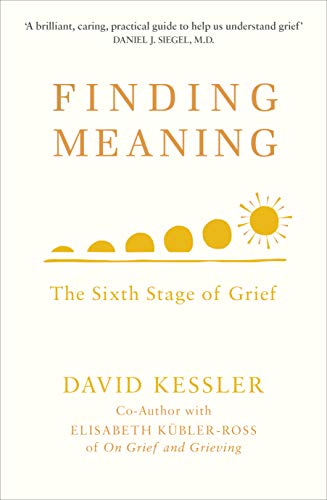What do you think?
Rate this book


272 pages, Paperback
First published November 5, 2019
“Ultimately, meaning comes through finding a way to sustain your love for the person after their death while you’re moving forward with your life. That doesn’t mean you’ll stop missing the one you loved, but it does mean that you will experience a heightened awareness of how precious life is. … In that way we do the best honor to those whose deaths we grieve. … Loss is simply what happens to you in life. Meaning is what you make happen. (p16)”In this book Kessler shares a variety of stories from people he has encountered leading numerous grieving workshops and providing counseling services for private clients dealing with issues related to grief. Many of these stories are emotionally moving about the ways some people have dealt with loss.
1. Meaning is relative and personalEarlier in the book Kessler mentions that the “five stages were never intended to be prescriptive.” This is also true for finding meaning. Some people suffering from grief will not want to think about meaning, and will resent expectations to find it in their grief.
2. Meaning takes time. You may not find it until months or even years after loss.
3. Meaning doesn’t require understanding. It’s not necessary to understand why someone died in order to find meaning.
4. Even when you do find meaning, you won’t feel it was worth the cost of what you lost.
5. Your loss is not a test, a lesson something to handle, a gift, or a blessing. Loss is simply what happens to you in life. Meaning is what you make happen.
6. Only you can find your own meaning.
7. Meaningful connections will heal painful memories. (p16)
Sometimes people say they don’t want to find meaning in their loss. They just want to call a tragedy a tragedy. To find meaning in it would be to sugarcoat it and they don’t want to do that. I think they are afraid that if they let go of the pain, they will lose the connection to their loved one, so I remind them that the pain is theirs and no one can take it away. But if they can find a way to release the pain through meaning, they will still have a deep connection to their child—through love. Just like a broken bone that becomes stronger as it heals, so will their love. (p183)